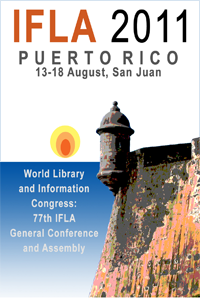Call for Papers
Genealogy and Local History Section
Theme:
Dispossessed Persons: preserving culture in an age of migration
Many groups live in areas other than their original homelandsbecause of forced resettlement. Involuntary migration impacts on the cultures of these regions.
In the past ethnic groups have migrated into adjoining territories, whether voluntarily or through force, expanding their influence over the new homeland. Very considerable numbers of migrants have uprooted themselves from their ancestral fatherlands to escape from unrelenting danger or from lives of insistent poverty. They have searched for opportunities for themselves and for their families in neighbouring countries and across the seas. With them they have taken the memories of their own genealogies, religious beliefs and family customs. They may have integrated with the original communities or may have remained separate, not acknowledging the history or traditions of the original settlers.
The impact of Involuntary migration can be studied in the genealogies and local histories of every region, in the social and cultural impact of the displaced and the dispossessed.
Suggested Topics
These could include, but are certainly not limited to, the following:
- Examples of forced migration and its impact on existing communities.
- Migrants, emigrants, immigrants, or settlers – what evidence have they left behind to show their effect on original populations?
- The great ‘Melting Pot’ – multiculturalism and immigration in America
- What programmes, projects, or new ideas have been developed to encourage the descendants of emigrants to re-connect with their heritage?
- What concerns are there over the preservation of migration history, especially that in oral or digital format?
Proposals
Papers for the session will be selected initially from abstracts reviewed by the Genealogical and Local History Section Committee.
Proposals should include:
- A detailed abstract of the proposed paper (maximum 500 words)
- Author details and brief biography with full contact information (name, full address, phone, email, digital photograph etc)
- The deadline for submitting the Proposals is Tuesday, 1st February 2011.
- Please submit Proposals electronically as a MS Word file by email to: Russell Lynch [email protected] and to Elizabeth Melrose [email protected]. Indicate “IFLA Proposal” in the subject line of the email
- All successful presenters will be notified by Saturday, 26th February 2011
Papers
- Successful presenters should submit final versions of their papers by Saturday, 14th May 2011
- Full papers should include an abstract. The completed Papers should be submitted electronically in English as an MS Word file of between 3,000 – 6,000 words by email to Russell Lynch [email protected] and to Elizabeth Melrose [email protected]. These papers will be made available on the IFLA Conference website
- At the Conference Open Session in San Juan, Puerto Rico, presenters will have 15 minutes only to deliver a summary of their paper as time will be needed for an open forum with questions and discussion from the audience
For more information, please contact Russell Lynch or Elizabeth Melrose
We look forward to having an interesting Open Session in San Juan, Puerto Rico. Please visit the IFLA Genealogy and Local History webpages for more details about our Section. Welcome!
Submissions
All proposals must be in before 1 February 2011.
Please note
All expenses, including registration for the conference, travel, accommodation etc., are the responsibility of the authors/presenters. No financial support can be provided by IFLA, but a special invitation can be issued to authors.
- Authors/presenters are expected to attend the Conference and to present their papers in person
- Papers must be original submissions and not published elsewhere
Congress Attendance Grants
The Puerto Rico National Committee and IFLA have worked hard to secure funds for Conference Participation Grants. Please check our Conference Participation Grants webpage for the most up-to-date information.
Last update: 18 January 2011


